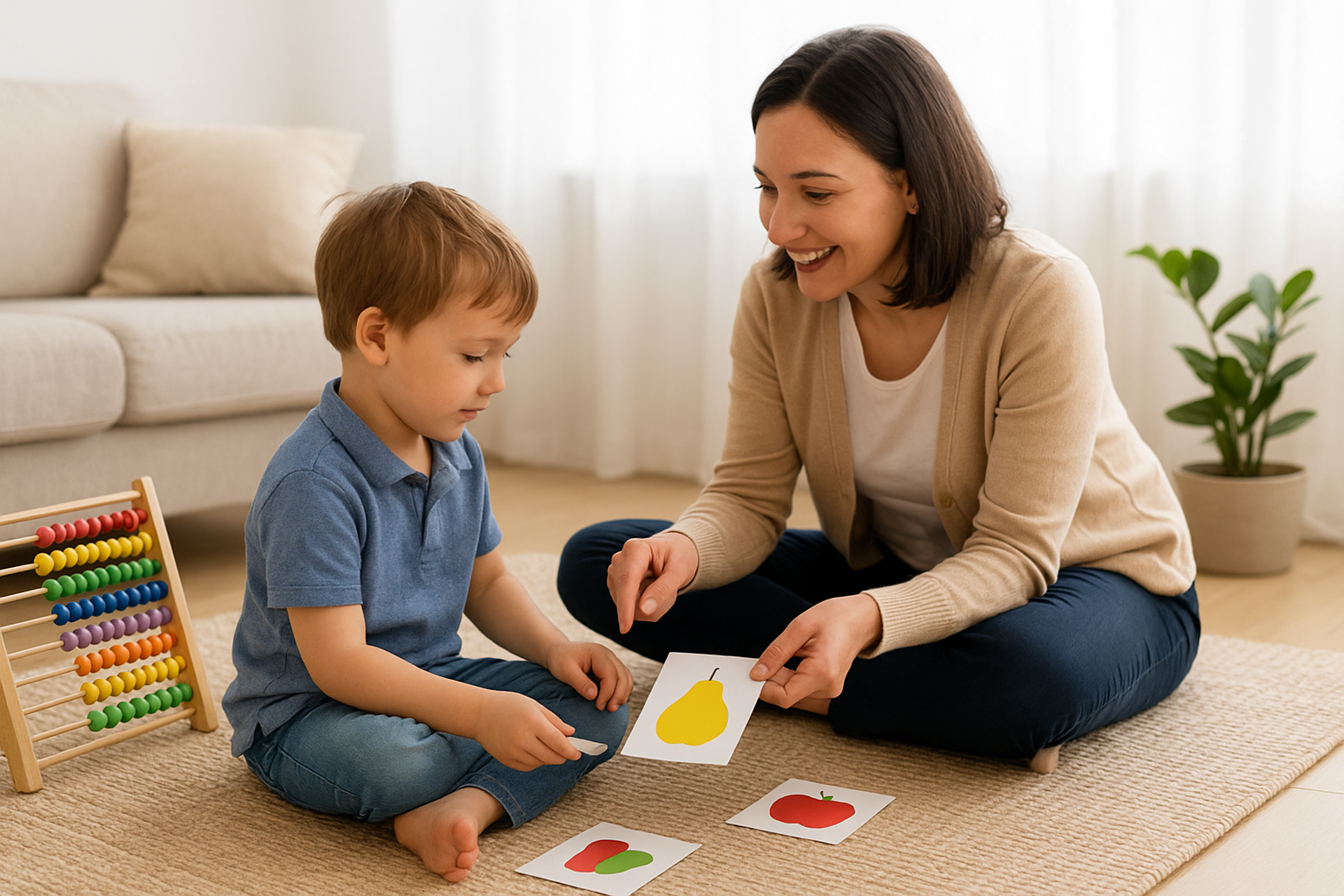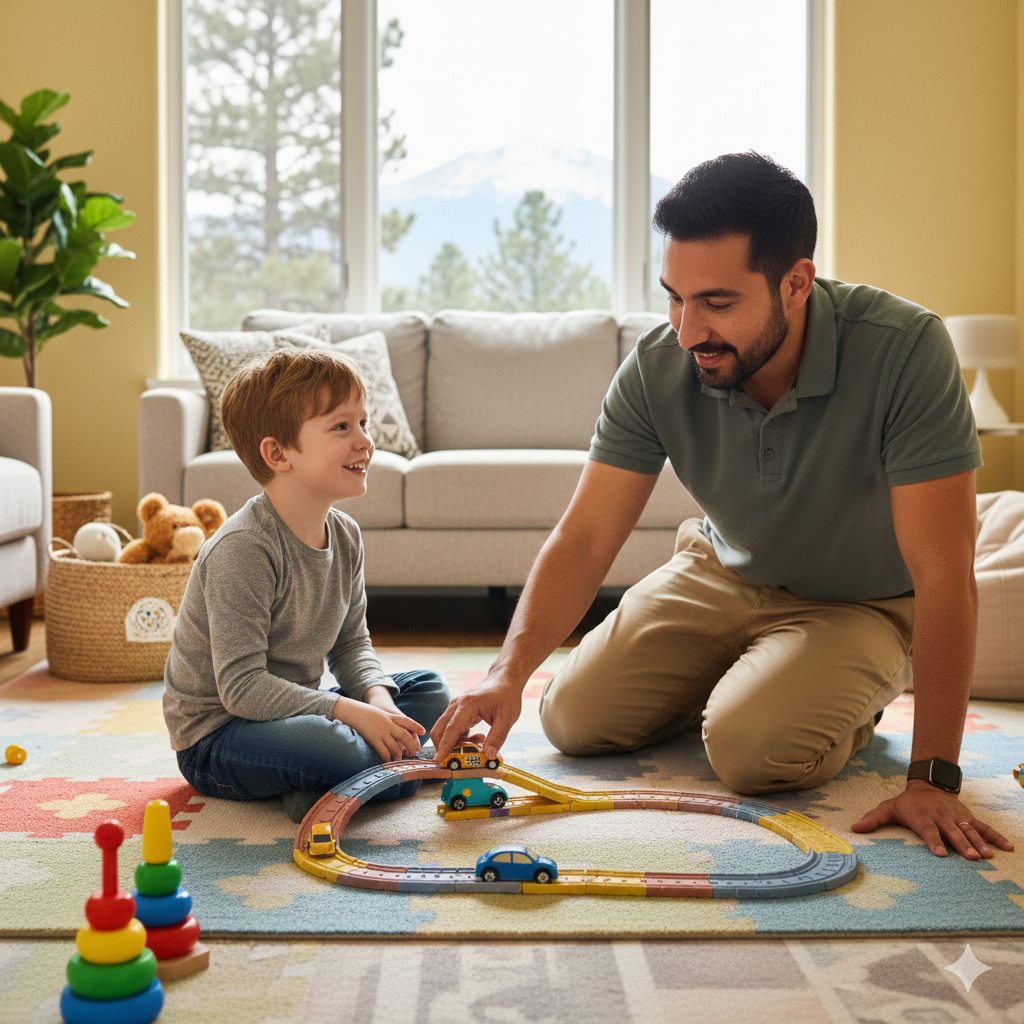Play-Based ABA Therapy: Turning Play Into Real Progress
Your child deserves therapy that feels like play, not pressure. At Achieving Stars, our in-home ABA therapy uses play to unlock real skills — confidence, communication, and connection — in a way kids actually enjoy.


How Does Play-Based ABA Help My Child Learn?
If your child struggles with social skills, communication, or emotional regulation, therapy shouldn’t feel like pressure—it should feel like play.
At Achieving Stars Therapy, we provide in-home, BCBA-supervised ABA therapy that uses structured play to teach meaningful skills. Your child has fun while learning how to share, follow routines, engage with others, and communicate more confidently.
We turn daily moments into opportunities for growth—without forcing what doesn’t feel natural.
Why Do Parents Choose Achieving Stars?
Here’s what makes our program different:
- We work in your home, where your child feels safe and routines are real
- Our therapists are trained to connect, not just instruct
- We focus on outcomes you care about—independent play, turn-taking, flexibility, and calm
- You’re part of the process, with regular coaching and collaboration


What happens in a session?
Play-based ABA isn’t just free play—it’s purposeful, data-driven intervention that looks like fun but teaches core developmental skills.
Here’s what a typical session might include:
- Practicing joint play with a sibling using turn-taking games
- Teaching independent play routines with puzzles or sensory toys
- Using pretend play to build language, imagination, and flexibility
- Embedding communication goals into favorite toys and interests
For many families—including those raising an autistic child—play-based therapy is where connection and communication start to click.
Home is the Best!
Therapy is more effective when your child practices skills in the place they play most—your living room, backyard, or playroom.
In-home ABA helps your child:
- Use skills across real daily routines
- Feel comfortable and less anxious
- Build habits with their actual toys, siblings, and environment
- Learn while you observe and stay involved
.png)

Parent Experiences
“I was skeptical at first, but my son lights up when his therapist arrives. It’s the first time therapy has felt right for him.” – Parent in Colorado
“My daughter used to meltdown every time we paused her play. Now, she can transition calmly—and even plays with her brother.” – Parent in New Hampshire
